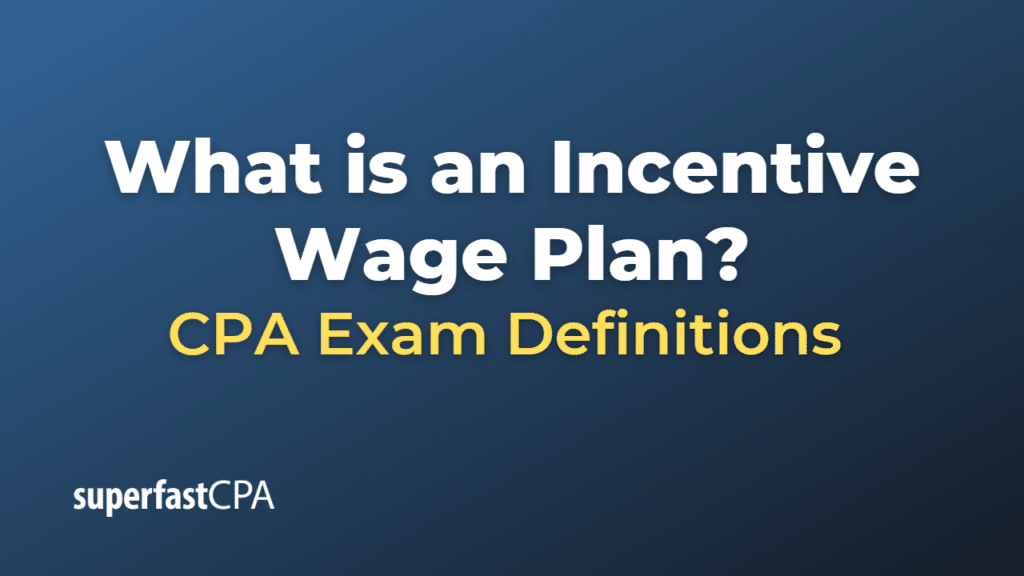Incentive Wage Plan
An incentive wage plan, also known as a performance-based compensation plan, is a type of remuneration system where employees are paid based on their productivity or performance, rather than simply on the hours they work or their position in the company. The primary aim of an incentive wage plan is to motivate employees to work more efficiently and productively, thus increasing the overall performance of the business.
There are various types of incentive wage plans, including:
- Piece-rate systems: Employees are paid a fixed rate for each unit of output they produce. For instance, a fruit picker might be paid a certain amount for each basket of fruit they pick.
- Bonuses: Employees receive additional payments on top of their regular salary based on meeting or exceeding certain performance goals. These goals might be individual, team, or company-wide targets.
- Profit-sharing plans: A portion of the company’s profits is distributed to employees. This can help align the interests of the employees with those of the business as a whole.
- Commission: Common in sales roles, employees are paid a percentage of the sales they make.
- Stock options or equity-based incentives: Employees are granted shares or options to buy shares in the company, often at a discounted price. This can incentivize employees to work towards increasing the company’s value, as this will directly increase the value of their shares or options.
Each of these plans has its own advantages and disadvantages, and different plans may be more suitable for different types of work and different business contexts. A well-designed incentive wage plan can be a powerful tool to motivate employees and increase productivity, but if not designed or implemented carefully, it could lead to unintended consequences, such as excessive focus on quantity over quality, or unhealthy competition among employees.
Example of an Incentive Wage Plan
Let’s take the example of a car dealership. In this business, the sales staff might be paid under a commission-based incentive wage plan. This means that for each car they sell, they receive a certain percentage of the sale price as their commission.
Let’s say a salesperson, John, sells a car for $20,000 and the commission rate is 5%. John would earn a commission of $1,000 (5% of $20,000) for that sale.
This type of incentive wage plan motivates the sales staff to sell more cars and to sell them at as high a price as possible, because their earnings are directly tied to their sales. It can be very effective in driving sales and profits for the dealership.
However, it’s also important for the dealership to balance this with measures that ensure customer satisfaction and ethical sales practices. For instance, they might also have performance metrics related to customer satisfaction scores or return rates, to prevent salespeople from using high-pressure sales tactics or misrepresenting the cars in order to make a sale.
This is just one example of how an incentive wage plan might work. The specifics can vary widely depending on the type of work and the goals of the business.













